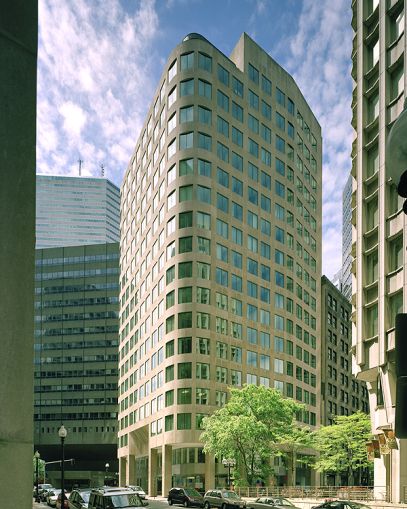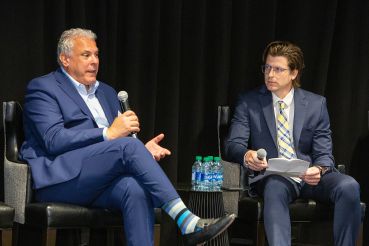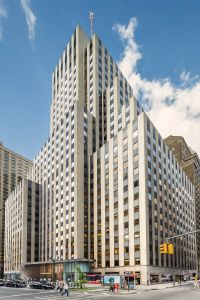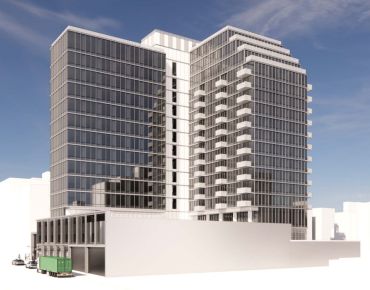Two Boston Office Buildings Nab $38M Refi From Nationwide Life
By Matt Grossman April 9, 2018 11:45 am
reprints
Nationwide Life has provided a $38 million mortgage to refinance a pair of adjacent office buildings in downtown Boston, according to an announcement from Colliers International Boston, which brokered the deal.
The ten-year loan rolls over old debt and comes at a fixed rate to take advantage of an affordable financing market, a Colliers (CIGI) executive said.
The two buildings pair old and new: 10 High Street, a ten-story tower, was built in 1915, while 155 Federal Street, with which it shares a lobby, topped out in 1982. The complex, which comprises 294,000 square feet, serves as the headquarters for Viking River Cruises, and also hosts tenants such as the New England College of Business; EDR Group, an economics consultancy; and Japanese optics manufacturer Konica Minolta.
Ground-floor retail space hosts an outpost of Serafina, an international group of Italian restaurants, and a Boston Commons Coffee Co. location. Overall, the buildings are 98 percent occupied.
A private group of Boston families owns the towers, having acquired 10 High Street in 1955 and sponsoring construction of 155 Federal Street in the early 1980s. Colliers’ Stephen Horan declined to identify the families. John Power, an executive at Farley White—the firm that manages the buildings—did not respond to a request for comment.
Horan said that supply constraints have supported strong rents in Boston’s Financial District.
“Certainly the barriers to entry in this market are very challenging,” Horan said. “It takes a long time to get a building built in Boston. The market is very tight, I think.”
Further, companies’ renewed interest in downtown addresses has bolstered demand for space in the city’s prime neighborhoods. Last year, The Boston Globe moved its main offices to a downtown Boston building, and Amazon announced plans to expand its presence in the city’s Back Bay neighborhood.
“I think [demand for urban locations] has been a trend downtown, in the Back Bay, and in the Seaport market,” Horan said. “Companies are coming back into the more urban area, because it’s attractive to the employee base.”


